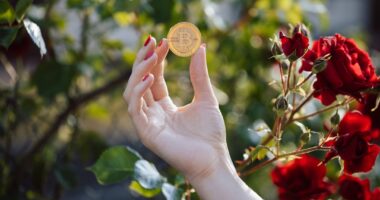Non-fungible tokens (NFTs) are unique digital assets stored on a blockchain, which is a decentralized and secure digital ledger. Unlike fungible cryptocurrencies such as Bitcoin or Ethereum, NFTs cannot be exchanged on a one-to-one basis due to their unique nature. NFTs can represent various digital assets, including artwork, music, videos, virtual real estate, and social media content.
When purchasing an NFT, the buyer acquires ownership and provenance of the digital asset, recorded on the blockchain. This ownership grants certain rights, such as reselling or displaying the NFT in virtual environments. NFT marketplaces facilitate the buying, selling, and trading of NFTs using cryptocurrency.
The popularity of NFTs stems from their ability to provide proof of ownership and scarcity in the digital realm, creating new opportunities for artists, creators, and collectors to monetize and trade digital assets. However, concerns have been raised about the environmental impact of NFTs, as the minting and trading processes can consume significant amounts of energy. As this technology evolves, it is crucial for individuals to understand both the potential benefits and drawbacks of NFTs before participating in this emerging market.
Key Takeaways
- NFTs are unique digital assets that represent ownership of a specific item or piece of content using blockchain technology.
- When choosing an NFT marketplace, consider factors such as fees, user interface, and the platform’s reputation for security and authenticity.
- Artists and creators can maximize their NFT sales by creating high-quality, original content and engaging with their audience through social media and other marketing channels.
- NFT trading raises legal and ethical considerations, such as copyright infringement and environmental impact, that traders should be aware of and navigate carefully.
- Staying informed about NFT news and trends is crucial for making informed decisions and staying ahead in the rapidly evolving NFT market.
Choosing the Right NFT Marketplace: Where to Buy and Sell Digital Assets
Key Factors to Consider
With the growing popularity of NFTs, there has been an explosion of NFT marketplaces where users can buy and sell digital assets. When choosing the right NFT marketplace, it is important to consider factors such as user interface, security features, fees, and the types of digital assets available for sale.
Popular NFT Marketplaces
Some of the most popular NFT marketplaces include OpenSea, Rarible, Foundation, and NBA Top Shot. OpenSea is one of the largest and most well-known NFT marketplaces, offering a wide range of digital assets including art, domain names, virtual worlds, and more. The platform is user-friendly and allows users to create and list their own NFTs for sale. Rarible is another popular NFT marketplace that is known for its decentralized approach and community governance model.
Specialized Marketplaces
For artists and creators looking to sell their own NFTs, Foundation is a popular choice due to its curated approach and focus on supporting emerging talent. The platform has a strict application process for creators, which helps maintain quality and authenticity in the digital assets available for sale. NBA Top Shot is a unique NFT marketplace that focuses on basketball-related digital collectibles, such as video highlights and player cards. The platform has gained a large following among sports fans and collectors, making it a popular choice for buying and selling basketball-themed NFTs.
When choosing an NFT marketplace, it is important to research and compare different platforms to find the one that best suits your needs as a buyer or seller. Consider factors such as user experience, fees, security measures, and the types of digital assets available to make an informed decision.
Creating and Selling Your Own NFTs: Tips for Artists and Creators

For artists and creators looking to enter the world of NFTs, there are several important considerations to keep in mind when creating and selling digital assets. One of the first steps is to decide what type of digital content you want to tokenize as an NFT. This could be anything from digital artwork and music to videos and virtual real estate.
Once you have decided on the type of content, you will need to choose an NFT marketplace where you can mint and list your NFT for sale. When creating your own NFTs, it is important to consider factors such as copyright and intellectual property rights. Make sure that you have the legal right to tokenize and sell the digital content as an NFT, and consider consulting with a legal professional if you have any concerns about ownership or licensing.
Additionally, it is important to consider the environmental impact of minting NFTs, as the process can consume a significant amount of energy. Look for eco-friendly options or consider offsetting the carbon footprint of your NFTs through initiatives such as carbon credits or donations to environmental causes. When selling your own NFTs, it is important to consider factors such as pricing, marketing, and community engagement.
Set a fair price for your digital asset based on factors such as scarcity, demand, and your own reputation as an artist or creator. Use social media and other marketing channels to promote your NFTs and engage with potential buyers. Building a strong community around your work can help drive interest and demand for your NFTs, leading to successful sales and a loyal fan base.
Navigating the Legal and Ethical Considerations of NFT Trading
As with any emerging technology or market, there are legal and ethical considerations to navigate when trading NFTs. One of the key legal considerations is ensuring that you have the legal right to buy, sell, or create NFTs based on the digital content involved. This includes considerations such as copyright, intellectual property rights, licensing agreements, and any potential disputes over ownership or authenticity.
It is important to do thorough research and seek legal advice if necessary to ensure that you are operating within the bounds of the law when trading NFTs. Ethical considerations also come into play when trading NFTs, particularly in relation to issues such as environmental impact and cultural appropriation. The process of minting NFTs and trading them can consume a significant amount of energy due to the underlying blockchain technology.
This has raised concerns about the environmental impact of NFTs, leading some artists and creators to seek out eco-friendly alternatives or offset the carbon footprint of their NFTs through various initiatives. Additionally, it is important to consider ethical issues related to cultural appropriation when creating or selling NFTs based on cultural or historical content. Navigating the legal and ethical considerations of NFT trading requires a thoughtful and informed approach that takes into account factors such as ownership rights, environmental impact, cultural sensitivity, and fair compensation for artists and creators.
By staying informed about these considerations and seeking out guidance when needed, individuals can participate in the NFT market in a responsible and ethical manner.
Staying Informed: Keeping Up with NFT News and Trends
The world of NFTs is constantly evolving, with new developments, trends, and controversies emerging on a regular basis. Staying informed about NFT news and trends is essential for anyone involved in the market, whether as a buyer, seller, artist, collector, or enthusiast. There are several ways to stay informed about NFTs, including following industry news sources, joining online communities and forums, attending virtual events and conferences, and engaging with thought leaders in the space.
Industry news sources such as CoinDesk, Decrypt, The Block, and Nifty Gateway provide regular coverage of NFT-related news, trends, and analysis. These sources offer valuable insights into market developments, technological advancements, regulatory changes, and cultural shifts related to NFTs. Joining online communities and forums such as Discord servers, Reddit threads, and Twitter spaces can also provide valuable opportunities to connect with other individuals interested in NFTs, share knowledge and experiences, and stay up-to-date with the latest discussions and debates in the space.
Attending virtual events and conferences focused on NFTs can provide valuable networking opportunities and access to expert insights from industry leaders. Many virtual events offer panel discussions, keynote presentations, workshops, and networking sessions that can help individuals stay informed about the latest trends and best practices in the world of NFTs. Engaging with thought leaders in the space through social media platforms such as Twitter or Clubhouse can also provide valuable perspectives on emerging trends and developments in the NFT market.
By staying informed about NFT news and trends through a variety of sources and channels, individuals can gain valuable insights into market dynamics, technological innovations, regulatory changes, cultural shifts, and best practices for participating in the world of NFT trading.
Managing Risks and Security: Protecting Your Digital Assets

Protecting Your Digital Assets from Theft and Fraud
When participating in the world of NFTs, managing risks and security is crucial. One of the key risks associated with owning or trading NFTs is the potential for theft or fraud. To protect your digital assets, it’s essential to take proactive steps to safeguard them from unauthorized access or malicious activity. Using secure wallets specifically designed for storing NFTs is one way to do this. These wallets offer features such as private key management, encryption, multi-factor authentication, and cold storage options to help safeguard your NFTs.
Being Cautious of Phishing Scams and Fraudulent Schemes
Another important aspect of managing risks and security when dealing with NFTs is being cautious about phishing scams or fraudulent schemes that target individuals involved in the market. Be wary of unsolicited messages or emails that ask for personal information or prompt you to click on suspicious links related to your NFT holdings. It’s essential to verify the authenticity of any communication related to your NFT transactions and only engage with reputable platforms or individuals when buying or selling digital assets.
Considering Market Volatility and Liquidity
In addition to protecting your digital assets from theft or fraud, it’s important to consider factors such as market volatility and liquidity when trading NFTs. Due to the speculative nature of some NFT markets, prices can fluctuate significantly over short periods of time. It’s essential to carefully consider your risk tolerance and investment strategy when buying or selling NFTs to avoid potential losses or unexpected outcomes.
The Future of NFT Trading: What to Expect and How to Prepare
The future of NFT trading holds many exciting possibilities as the technology continues to evolve and expand into new areas of creativity, commerce, and culture. As blockchain technology becomes more widely adopted and integrated into various industries, we can expect to see new use cases for NFTs emerge beyond art and collectibles. This could include applications in areas such as gaming, virtual reality, music streaming, ticketing systems, identity verification, supply chain management, and more.
In addition to new use cases for NFTs, we can also expect to see advancements in technology that improve scalability, interoperability, sustainability, and user experience within the world of NFT trading. This could include developments such as layer 2 scaling solutions for blockchain networks, cross-chain interoperability protocols that enable seamless asset transfers between different blockchains, eco-friendly alternatives for minting NFTs that reduce energy consumption, and user-friendly interfaces that make it easier for individuals to discover, purchase, sell, display, and manage their digital assets. As the world of NFT trading continues to evolve and mature, it is important for individuals to prepare by staying informed about new developments in technology, regulations, market dynamics, best practices for security and risk management.
By staying informed about these developments through industry news sources attending virtual events engaging with thought leaders in the space individuals can position themselves for success in the future of NFT trading. In conclusion understanding what an nft is how it works choosing an nft marketplace creating nfts navigating legal ethical considerations staying informed managing risks security preparing for future developments are all crucial aspects when dealing with nfts these digital assets have opened up new opportunities for artists creators collectors investors but they also come with their own set of challenges risks it is important for individuals involved in nft trading to approach this emerging market with knowledge caution responsibility by staying informed about best practices staying up-to-date with news trends seeking legal advice when needed individuals can navigate this exciting new frontier in a way that aligns with their goals values while minimizing potential risks
FAQs
What is NFT trading?
NFT trading refers to the buying, selling, and exchanging of non-fungible tokens (NFTs) on various online platforms. NFTs are unique digital assets that are stored on a blockchain and represent ownership of a specific item or piece of content, such as artwork, music, videos, or virtual real estate.
How do I start NFT trading?
To start NFT trading, you will need to set up a digital wallet that supports NFTs, such as MetaMask or Trust Wallet. Then, you can browse NFT marketplaces like OpenSea, Rarible, or Foundation to buy and sell NFTs. It’s important to do thorough research and understand the risks involved before getting started.
What are the risks of NFT trading?
NFT trading comes with several risks, including market volatility, potential scams and fraud, and the lack of regulation in the NFT space. Additionally, there is the risk of copyright infringement and legal issues related to the ownership and authenticity of NFTs.
What are some popular NFT marketplaces?
Some popular NFT marketplaces include OpenSea, Rarible, Foundation, and NBA Top Shot. These platforms allow users to mint, buy, and sell NFTs across various categories, including art, collectibles, gaming, and more.
What are some tips for successful NFT trading?
Some tips for successful NFT trading include conducting thorough research on the NFT market, understanding the value and potential of the NFTs you are interested in, staying updated on industry trends, and being cautious of potential scams and fraudulent activities. It’s also important to consider the environmental impact of NFT trading, as it requires significant energy consumption.





